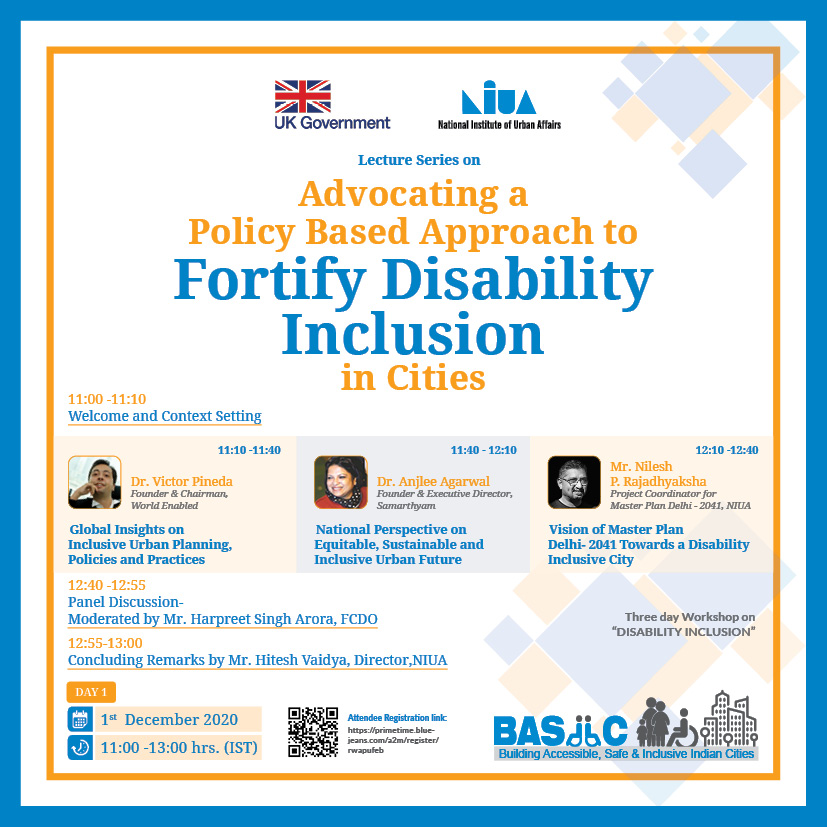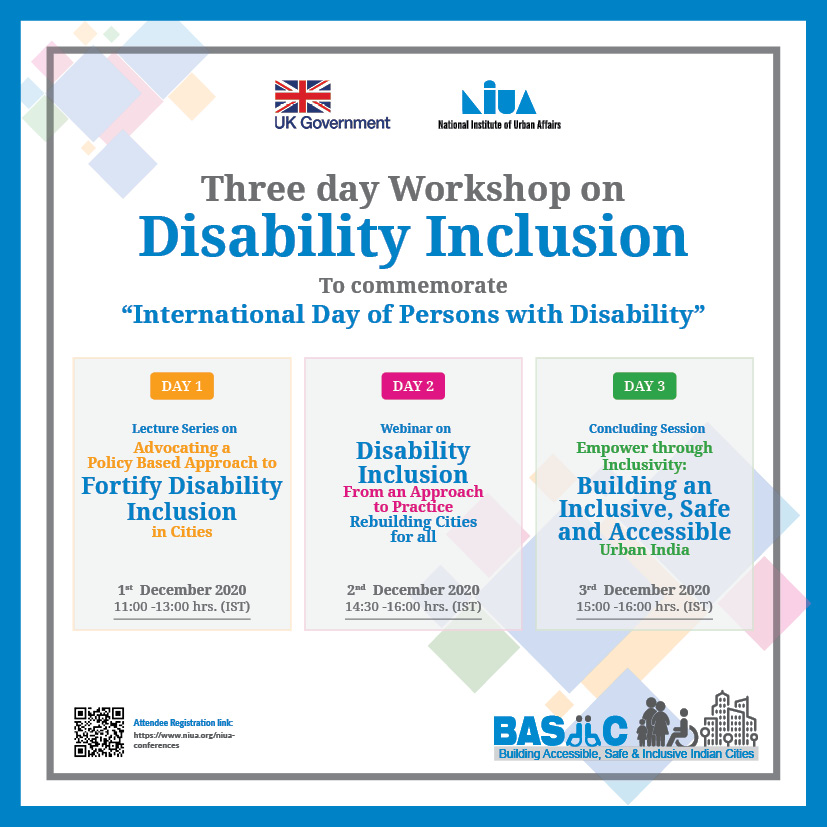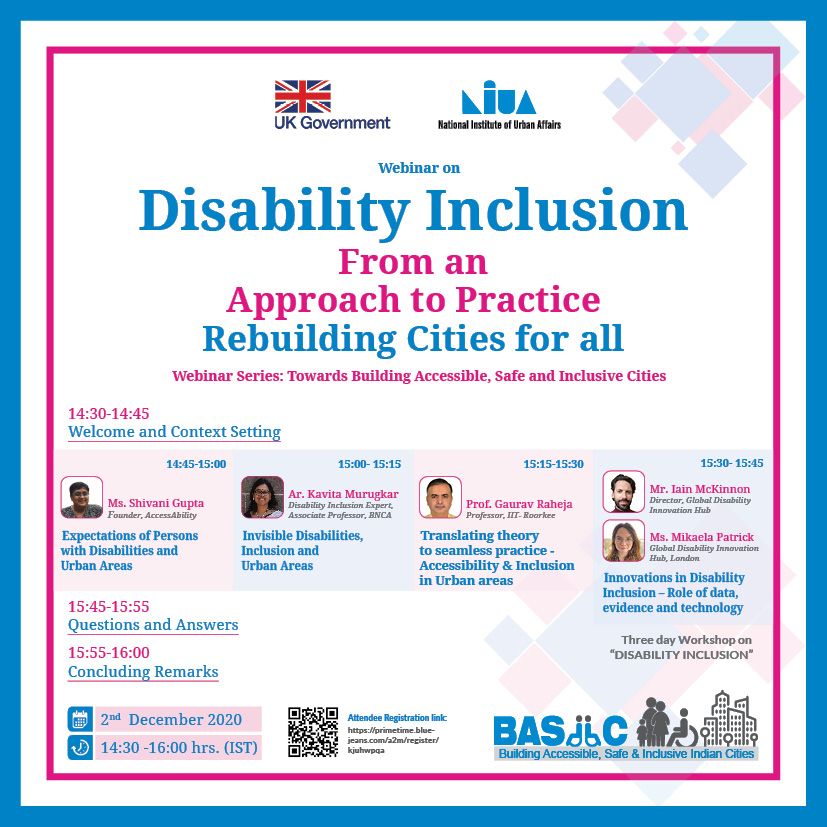Description :
The Context World Health Organisation estimates more than one billion people i.e., about 15% of the world's population, experience some form of disability. For this reason, in various ways, Sustainable Development Goals talk explicitly about in parts related to education, growth and employment, inequality, accessibility of human settlements, and data collection and monitoring of the SDGs to empower those who are vulnerable in society. In this context, National Institute of Urban Affairs, through BASIIC program, is taking the initiative of addressing these inequalities and mainstreaming inclusion into the urban agenda. Building Accessible Safe Inclusive Indian Cities' (BASIIC) program at the National Institute of Urban Affairs (NIUA) has been developed with the support from the FCDO of the UK government. The program was founded on the recommendations highlighted in the consultation convened under the chairmanship of Hon'ble Minister Sh. Hardeep Singh Puri. Held in September 2018, the consultation invited expert insights on framing measures and policy recommendations for Persons with Disability (PwDs). The principal goal of BASIIC to build the capacities of Indian cities and practitioners to be sensitive and responsive to the needs of Persons with Disabilities. BASIIC endeavours to promulgate aspects of "Accessibility, Safety, and Inclusivity" into the fabric of urban development. International Disability Day For the past two decades, the United Nations(UN) is working in various capacities to mitigate the barriers faced by persons with disabilities. The "International Day of Person with Disability" is an annual observance on the 3rd of December, proclaimed in 1992, by the United Nations General Assembly resolution 47/3. The Day's observance aims to promote an understanding of disability issues and mobilize support for the dignity, rights, and well-being of persons with disabilities. It also seeks to increase the gains through awareness derived from integrating persons with disabilities in every aspect of political, social, economic, and cultural life. The CoVID-19 pandemic has fortified the connections between public health, environment, economy, challenges faced by persons with disabilities, and has retracted how the buildings and cities have been planned. It is resonated in this year's theme of "Building Back Better: toward a disability-inclusive, accessible and sustainable post-COVID-19 World" as adopted by the United Nations. The Day is celebrated across India by relevant government departments, Disable people organizations, and other stakeholders. More than the mere observance, celebrations of this Day is a sign of solidarity towards the international community and India's commitment towards the UN Convention on Rights of Persons with Disabilities (UNCRPD). On this important occasion, BASIIC program has planned to conduct a three-day workshop on "Disability Inclusion" The workshop is constituting Expert Lectures and webinar with experts on exploring practical ways of bringing in inclusion in urban space and design, engaging with youth and citizenry through an open call for competitions, and spreading awareness through the launch of knowledge products developed by NIUA on related topics. What do we want to accomplish? International Disability Day celebration aims to increase public awareness, understanding, and acceptance of people with disabilities and celebrate their achievements and contributions. The workshop intends to engage with the public and promote awareness among young professionals, students, ULB officials, urban practitioners, and other stakeholders and sensitize them about the concerns of persons with disabilities. It also intends to bring in an action-oriented approach and discuss innovative yet practical methods of mainstreaming disability inclusion into the urban agenda. Day 1 https://primetime.bluejeans.com/a2m/register/rwapufeb Day 2 https://primetime.bluejeans.com/a2m/register/kjuhwpqa Day 3 https://primetime.bluejeans.com/a2m/register/ddqdazek


